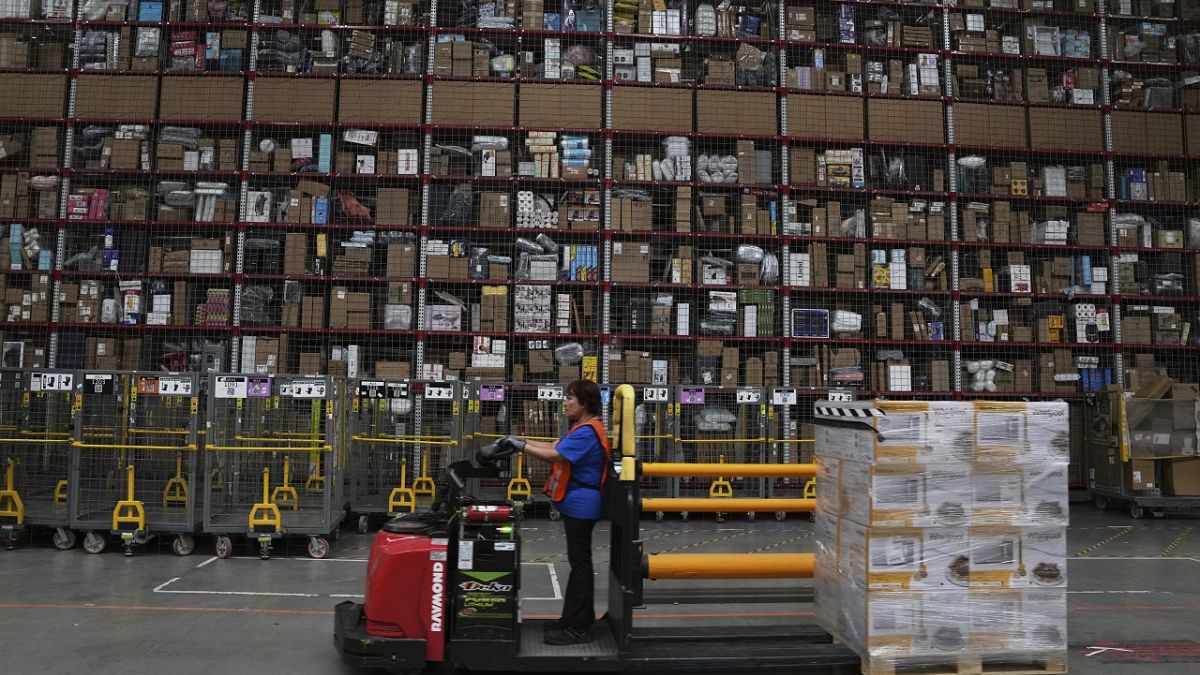Published on
Amazon will on Thursday try to convince EU judges that it should not have to comply with the strictest requirements under the bloc’s online platform rules – the Digital Services Act (DSA) – because it does not pose the systemic risks that the rules intend to combat.
The DSA entered into force in 2023 and obliges platforms to prevent illegal activities online as well as to counter the spread of disinformation.
Amazon is one of the 25 Very Large Online Platforms (VLOPs) that were designed by the European Commission because they have more than 45 million users per month. To them, the strictest rules apply.
Amazon challenged that decision before the court and argues that its marketplace activities do not fall in the scope of the rules.
A spokesperson told Euronews ahead of the hearing in the EU’s highest court in Luxembourg on Thursday that the DSA was designed to address systemic risks brought by those companies “with advertising as their primary revenue and that distribute speech and information”.
The Amazon Store, as an online marketplace, “does not pose any such systemic risks; it only sells goods, and it doesn’t disseminate or amplify information, views or opinions,” the spokesperson added.
The court last year already dismissed interim measures requested by Amazon in a bid to avoid full implementation until the challenge had been decided.
The Big Tech company said that making their advertising public, as the DSA requires, would give away trade secrets to their competitors.
However, the ruling said that EU interests prevail over Amazon’s material interests and stressed the importance of the timely implementation of the law.
Consumer concerns
The Amazon spokesperson said that despite it contesting the VLOP designation, the company is “committed to protecting customers from illegal products and content”.
Consumer group BEUC, which will intervene in the court hearing on the side of the Commission, said in a statement that illegal products have “regularly” been found on sale on online marketplaces, including Amazon.
Agustín Reyna, BEUC’s director general, said that “it is crucial that the DSA applies in full to Amazon and consumers are protected from any illegal practices once and for all”.
The Commission has opened several probes into breaches of the DSA, including into TikTok, X, Facebook, Instagram and AliExpress since the rules came into force. None of the probes, including the one against Temu on suspicion of the sale of illegal products, have been wrapped up.
User numbers
Besides Amazon, German fashion website Zalando also challenged the Commission designation as a VLOP.
Zalando said in a court hearing in March that the way the EU executive calculates the user numbers to designate VLOPs can be different from company to company.
It also claims that its “hybrid business model” with a retail business and a partner business does not fall within the scope of the DSA.
If the court sides with Zalando, this could mean a breakthrough for other platforms with similar business models, as well as those that also appealed their designation including Amazon, and porn websites Pornhub and Xvideos.
Rulings in both the Amazon and Zalando case are expected at a later time.

